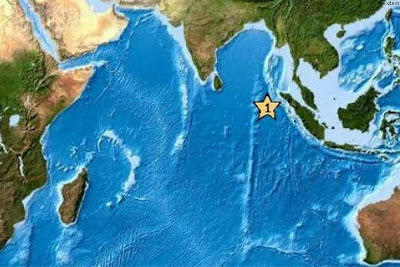We have been familiar with soy as a source of healthy food. Recently
found evidence that soy protein can reduce the symptoms of liver
disease.
University of Illinois scientists report that the protein may reduce the
accumulation of fat asses and trigeliserida in the liver that can lead
to the emergence of liver disease, especially in people who are obese.
This is because soy is able to restore some of the key functions of the
organ signaling pathway.
"Nearly a third of American adults have fatty liver disease, and many of them without experiencing certain symptoms. Obesity is a key risk factor for this condition and this can lead to liver failure," said Hong Chen, assistant professor of food science and nutrition humans at the University of Illinois as reported from Health24, Wednesday (25/04/2012).
In general, fat is metabolized in the liver, but the people who are obese, fat transport to the tissues can be slowed down so adiposanya become dumping grounds for excess liver fat, he said.
"When fat accumulates in an organ that is not supposed to store fat, such as the liver, the function of vital organs can become dangerous," he added. But eating soy protein sources like tofu and soy yogurt seems to reduce some pressure on the liver fat, he said.
Chen compared the accumulation of fat in lean rats and rat liver obesity. The result, Chen did not find any effect of diet on rat liver thin profile. However, obese rats that were fed soy showed a reduction in triglycerides and fat accumulation by 20 percent so that Chen believed that soy protein can be used to reduce the symptoms of fatty liver disease.
Furthermore, researchers also found that soy protein partially restored the protein Wnt signaling pathway as a crucial player in lipid metabolism.
"In the obese, there is a traffic problem in the body. When there is more fat that can make a way out of the heart, pressure on the organs that could be reduced," he said.
"Nearly a third of American adults have fatty liver disease, and many of them without experiencing certain symptoms. Obesity is a key risk factor for this condition and this can lead to liver failure," said Hong Chen, assistant professor of food science and nutrition humans at the University of Illinois as reported from Health24, Wednesday (25/04/2012).
In general, fat is metabolized in the liver, but the people who are obese, fat transport to the tissues can be slowed down so adiposanya become dumping grounds for excess liver fat, he said.
"When fat accumulates in an organ that is not supposed to store fat, such as the liver, the function of vital organs can become dangerous," he added. But eating soy protein sources like tofu and soy yogurt seems to reduce some pressure on the liver fat, he said.
Chen compared the accumulation of fat in lean rats and rat liver obesity. The result, Chen did not find any effect of diet on rat liver thin profile. However, obese rats that were fed soy showed a reduction in triglycerides and fat accumulation by 20 percent so that Chen believed that soy protein can be used to reduce the symptoms of fatty liver disease.
Furthermore, researchers also found that soy protein partially restored the protein Wnt signaling pathway as a crucial player in lipid metabolism.
"In the obese, there is a traffic problem in the body. When there is more fat that can make a way out of the heart, pressure on the organs that could be reduced," he said.






















